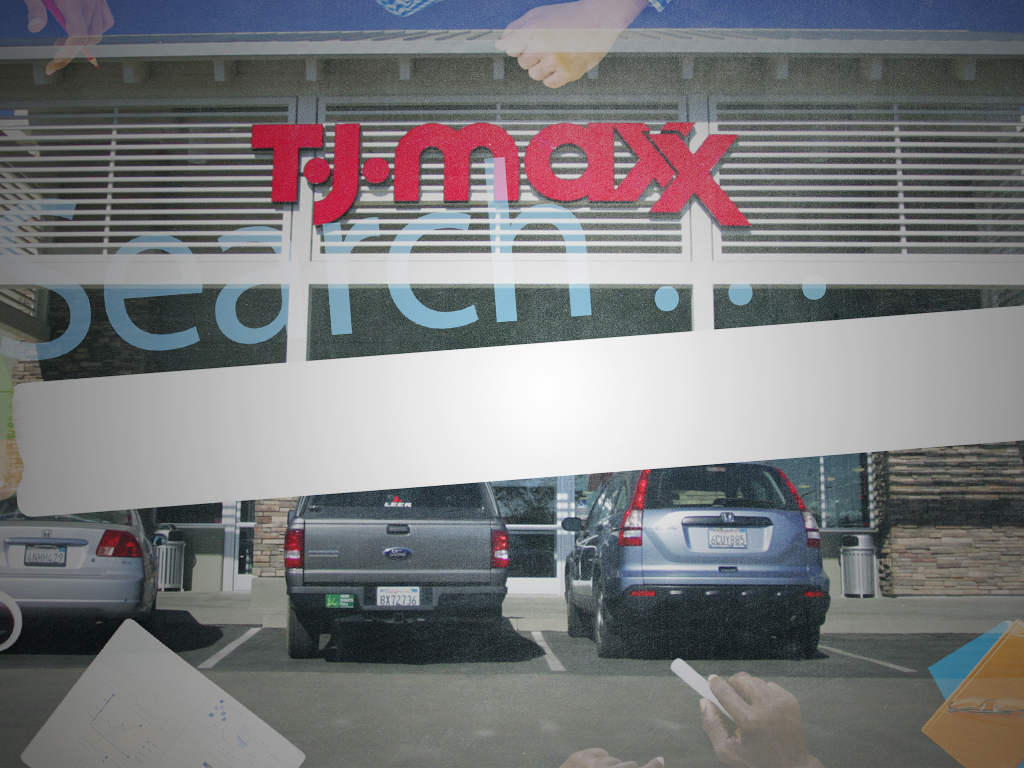As your online presence becomes larger and the algorithms in the search engines and social media become more complex, is it time to look at adding a Chief Digital Officer (CDO) to your in-house team? Here’s why a CDO can be essential to your company’s growth and profits.
As digital marketers (SEOs) we frequently interface and interface frequently with the companies for which we do work.
In smaller brands and businesses this is usually one person; the owner, president, or business manager will be our channel of communication when helping the company make site changes to benefit their digital presence and website visibility.
However, there often isn’t such an equally straight line of implementation when working with larger companies. When working with larger corporations we typically deal with two company silos: marketing and IT. Occasionally there is an in-house SEO team or in-house SEO, but they are still living under the marketing group in most cases and there is little interaction.
Split Effort
For the marketing group this means that in addition to their usual duties such as offline/online advertising, public relations, corporate branding and identity development the marketing channel is responsible for the front-facing portion of the company’s online presence. This entails details such as web content, web design, digital advertising, and social media.
When it comes to the IT department, their jobs are also similarly split between typical work tasks (e.g., server administration and corporate security) and those related to the website presence (e.g., such as analytics implementation and page speed).
On the surface this seems a perfectly reasonable division of labor. Marketing should control the corporate presence and IT should maintain the platform the marketing group uses.
What seems reasonable and what actually works are often two different things, however.
Too often this division means conflicting ideas or the majority of what needs to be done falls through the cracks and only “what we can fit in our schedule” issues get resolved. It also means the person in charge of facilitating your changes, your digital marketer, has no power or authority to make sure those changes occur.
What Is A Chief Digital Officer?
Chief Digital Officers (CDOs) are basically your best SEOs grown-up and off to the executive offices with a rarely worn suit and tie.
The Russell Reynolds Executive Search (one of the top five executive search companies in the country) describes the CDO as possessing the following:
“CDO candidates should be familiar with web, mobile and social media — and possibly local as well. They should be able to plan and execute long-term strategy around driving customer awareness, engagement, experience and monetization. When it comes to innovation, candidates should have experience developing new channels and business models, as well as innovative products and services. The CDO also must be tech savvy; though knowing how to code may or may not be required, the ability to manage developers and ask the right questions is a minimum requirement.”
Utilizing these core competencies:
“As with any senior leadership position, a range of competencies is required:
- Setting strategy. With the digital landscape evolving so quickly, CDOs need to have excellent strategic skills, with the ability to chart the right course and make agile alterations when needed.
- Executing for results. Strategic insight must be coupled with a strong execution orientation and an ability to deliver results despite the complex and fluid environment.
- Building relationships and using influence. In today’s climate, the culture and practices within a business can change as quickly as those in the external market. Chief Digital Officers, therefore, must be able to build relationships across all levels and functions of the organization – from the Board down to the front line – and effectively manage conflict.
- Leadership. CDOs must in turn be able to recruit top talent and to lead large and (sometimes) globally distributed teams.
- Demonstrating cultural sensitivity. This is particularly important, as those skilled in new digital tools may view the world differently from others in more traditional parts of the business.”
Why Do You Need A CDO?
A Chief Digital Officer is a leader with an immense amount of digital expertise. They aren’t merely overseers; they are doers with an active skill set that goes beyond planning and management.
Your CDO will know how to get results because they have done the work; they have achieved success for themselves, their companies, and their clients. A qualified CDO will know the secrets that only living in a universe can teach you.
A CDO can be essential to company growth and profits.
So while we know there are great benefits to having a CDO, what are the issues of not having one? Why do you need yet another C‑level executive?
Not having a CDO can result in issues that will range from small to large, depending on your staff’s experience and expertise, but generally fall into these three categories:
1. Cohesive Strategy Issues
Lack of a CDO means no one group or person in your organization can develop, implement, or test a comprehensive online digital strategy. The death knell of any digital marketing plan is the lack of a complete picture. Without this complete picture and the ability to affect all aspects, the plan is likely to fail to reach the hoped for gains and expected goals.
2. Knowledge, Experience Issues
Without a CDO the company has no one person who has worked mostly (or even only) in the digital landscape for as many years as there has been one, or at least almost as many. There is a level of expertise that cannot be learned from any book or training. Part of being an excellent digital marketer is knowing those things that are never published and often only talked about under NDAs or at conference bars.
Digital marketing, search engines, social media and the landscape in which they live changes nearly every day – sometimes even many times in a day. A CDO will have years of knowledge and know-how that is just not possible to obtain when your job takes you in and out of the digital space as with the marketing and IT groups. It is not that those groups can’t know, but they have other things they should be doing, this is not their wheelhouse and the argument can be easily made that it should not be.
Freeing your internal groups up to spend their time in their space means your marketing and IT groups can do what you hired them for in the first place and not be overtaxed and understaffed trying to work in two different fields at once.
3. Singular Authority
Without a CDO, there is often an internal issue where there is a dissimilarity of knowledge at best and competition between departments at worst. This means that you have two groups approaching your website and digital visibility strategies from different and often conflicting perspectives.
Dividing the work and leaving no one group in charge with clear control over who makes changes, how they make changes, when then make changes, and most importantly what changes to make, is a recipe for mediocrity at best.
In the end, the divided approach often leaves the two verticals within in a company battling for resources and access. The marketing group won’t allow the IT group time and the IT group won’t allow the marketing group access. It becomes the red tape that stops the wheel from turning.
The processes and work involved aren’t dualities, but single sides of the same coin. Without the compound, which molds the sides together into one, they can lose their value.
In the Real World
After speaking at SXSWi, a director of marketing for a large technology company came up to ask me why their new site wasn’t performing as they expected. When I looked at the site it took about two minutes to tell him that their brand new site, while beautiful, was not likely to ever perform well.
A bit shocked he asked why.
I told him that there were no clear calls to action, the page was confusing, and there were no clear value propositions. It was also easy to see it wouldn’t perform well in search.
Wanting to be helpful, I suggested he create a page with clear comparative value propositions and pricing with a simple buy button in a nice color of their tested choice.
He looked surprised and told me that they actually were A/B testing a page just like that (their old page) and it was killing the new one converting at nearly 3x the rate.
How could a company this large and this well known, in the technical space nonetheless, have such huge onsite conversion issues? How did it happen that no one from the CMO to the director down to the project manager caught this? They didn’t because it was not their wheelhouse.
There is a common and pervasive myth that just because marketers know advertising or technologists know code that this means they are qualified to run a digital marketing effort. Most often they are not. Digital marketing entails so many more parameters than both combined.
Digital is its own animal, not a tech/marketing hybrid split easily down the middle.
In this case, the company spent hundreds of thousands of dollars creating something that was pretty on paper, but didn’t work in the online world.
What if there had been a CDO and a team of their picking who could have also seen the issues within the site they created in the same two minutes? How much money would they have saved and how many hours could they have put toward other projects that would make them real dollars?
CMOs are not CDOs. The two should not be confused.
Your online presence requires, even demands there be a central digital strategy in place. This strategy must be formed, developed, and implemented by someone who knows the entire picture, not just a piece of it. They must be able to execute it with an understanding of how all parts integrate and synergize. Without this comprehensive knowledge and execution, often what seems right just isn’t.
The SEO And CDO
CDOs aren’t just knowledgeable about your digital presence, but also retain all the expertise that is needed to properly run an entire division of a company and make that division successful. This makes finding a qualified person difficult.
Most people who would best qualify for the role are search engine optimization professionals (digital marketers) with a breadth of on-site, technical, off-site, and social skills as well as deep understandings in the workings of client and employee management. This doesn’t mean, however, that these digital marketers would meet the qualifications to be a C‑level executive.
Yet when companies have to choose one or the other, the qualifications are often more heavily weighted in favor of the skills at the C‑level and not that of a digital expert. This is a mistake on the company’s part.
Not understanding the digital space today costs companies in users and dollars – many users and many dollars.
If talent is scarce and you have to choose which area of expertise to go easy on, choose the C‑level experience. A true digital marketer with the experience to qualify for the position will be well versed in the base skills needed for the C‑level management.
With this base you can train and develop a candidate into the executive you want them to be and much more quickly than you can turn them into a proper digital expert. Both are difficult, but only digital marketing changes 24 hours a day, seven days a week, and 365 days a year.
Don’t Cheat Yourself
Never cheat yourself on a CDO who lacks the necessary experience in the digital space to create a comprehensive strategic plan with the knowledge to execute that plan. If a CDO doesn’t know about managing and implementing websites in both desktop and mobile, how to produce a proper search engine optimization strategy, how to create great social engagement, and lower your cost on paid advertisements while improving user traffic and site stickiness, then you’re cheating yourself.
If the CDO doesn’t know why certain technologies cause crawler issues and how the color of a button can increase your conversions X percent, and can’t tell you how to avoid a Google penalty or why infinite scroll probably isn’t the best idea, you’re wasting your time.
The knowledge base for a CDO is vast and deep. Their presence will save your company from big mistakes that can cost you time and money. Get one today!
How important do you think a Chief Digital Officer is to a company’s digital success?



